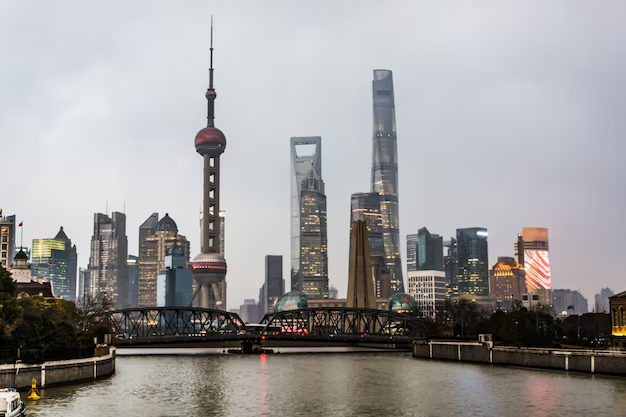
Travelers heading to Gatwick Airport from Haywards Heath were informed of delays and cancellations expected to last until midday due to a signalling fault on the Brighton to London railway line. The disruption, which affected Gatwick Express services, was initially caused by a technical fault, and engineers were working to resolve the issue. However, despite attempts to fix the problem overnight, the fault reoccurred, causing a second day of delays and cancellations.
Disruptions and Delay Expectations
Passengers traveling on the route were advised that their journeys would be delayed by up to 30 minutes on Wednesday morning, leading to frustration and confusion for those looking to catch their flights or make important connections. The railway company, Southern, announced that engineers from Network Rail had worked overnight to address the issue, but unfortunately, the fault persisted, forcing the suspension of Gatwick Express services.
Southern urged passengers to consider alternative routes and reassured them that tickets would be accepted on “any reasonable route” between Brighton and London to minimize the impact of the disruption. This flexibility allowed travelers to continue their journeys despite the ongoing problems.
Repeat Disruptions Affecting Brighton to London Line
This incident follows a similar set of issues on Tuesday morning, when two separate faults caused significant disruptions on the same railway line, resulting in cancellations. Passengers who rely on this route to travel between Brighton, London, and Gatwick were understandably frustrated, as the delays stretched for consecutive days. The extended disruption had a knock-on effect for those traveling to and from Gatwick Airport, one of the UK’s busiest airports, as well as passengers making connections to other parts of the country.
The recurring technical issues highlight ongoing vulnerabilities in the infrastructure of the Brighton to London line, a crucial route for both commuters and travelers. With the railway line serving as a key transport option for those flying in and out of Gatwick Airport, delays on this route can create significant problems, especially during peak travel times.
Impact on the Travel Industry
The disruptions to train services between Haywards Heath and Gatwick Airport are likely to have broader implications for the travel industry, particularly in terms of air travel. Gatwick Airport, a major hub for both domestic and international flights, depends heavily on efficient transport links to facilitate smooth passenger flow. Delays and cancellations on the railway line could result in passengers missing their flights, creating a ripple effect in terms of airport operations.
Moreover, this ongoing disruption highlights the challenges that rail transport faces in meeting the growing demand for reliable services, especially during peak travel periods such as the busy holiday seasons. With increasing numbers of travelers relying on train services to reach airports, any disruption to these services can cause cascading delays and congestion at terminals. This could affect airlines as well, leading to potential delays in take-off and departures, particularly for passengers flying on tight schedules.
In addition to the direct impact on passengers, the disruptions may also lead to increased costs for airlines and other stakeholders in the travel industry. When passengers are delayed, they often require rebooking or other forms of assistance, and in some cases, compensation for missed connections or flight cancellations. The ripple effect on operations may also cause scheduling and resource allocation problems for airlines, rail companies, and the airport itself.
Global Effects on Travelers
On a global scale, delays and cancellations on major transport routes like the one between Haywards Heath and Gatwick Airport can have a significant impact on travelers, particularly those coming from international destinations. Passengers flying into Gatwick from other countries may face difficulty coordinating their connections, leading to frustration and missed opportunities. International travelers who rely on Gatwick’s rail connections to other parts of the UK may find their onward travel plans disrupted as well, especially if they were depending on train services to reach their final destination.
The disruption may also prompt travelers to explore alternative methods of transport, such as taxis, buses, or private vehicles, which could lead to congestion on the roads around Gatwick and other key transport hubs. This could create delays for both local commuters and international travelers, compounding the effects of the initial train disruption.
The growing reliance on rail services to reach airports, combined with the increasing demand for seamless travel experiences, makes this kind of disruption particularly significant for the global travel industry. It emphasizes the need for continued investment in infrastructure and technology to ensure the smooth functioning of transport systems and prevent similar issues from arising in the future.
The disruption to services between Haywards Heath and Gatwick Airport highlights ongoing challenges in the transport sector, especially when critical rail services experience faults. With a major airport like Gatwick being affected, the ripple effects extend beyond local commuters, potentially disrupting international travel and causing delays at the airport. The travel industry must work together to find solutions that minimize the impact of such delays and ensure smooth, reliable services for all passengers.
The post Gatwick Airport Travelers and Brighton to London Commuters Face Continued Delays and Cancellations Due to Ongoing Signalling Fault Affecting Haywards Heath and Surrounding Routes appeared first on Travel And Tour World.




Comment (0)